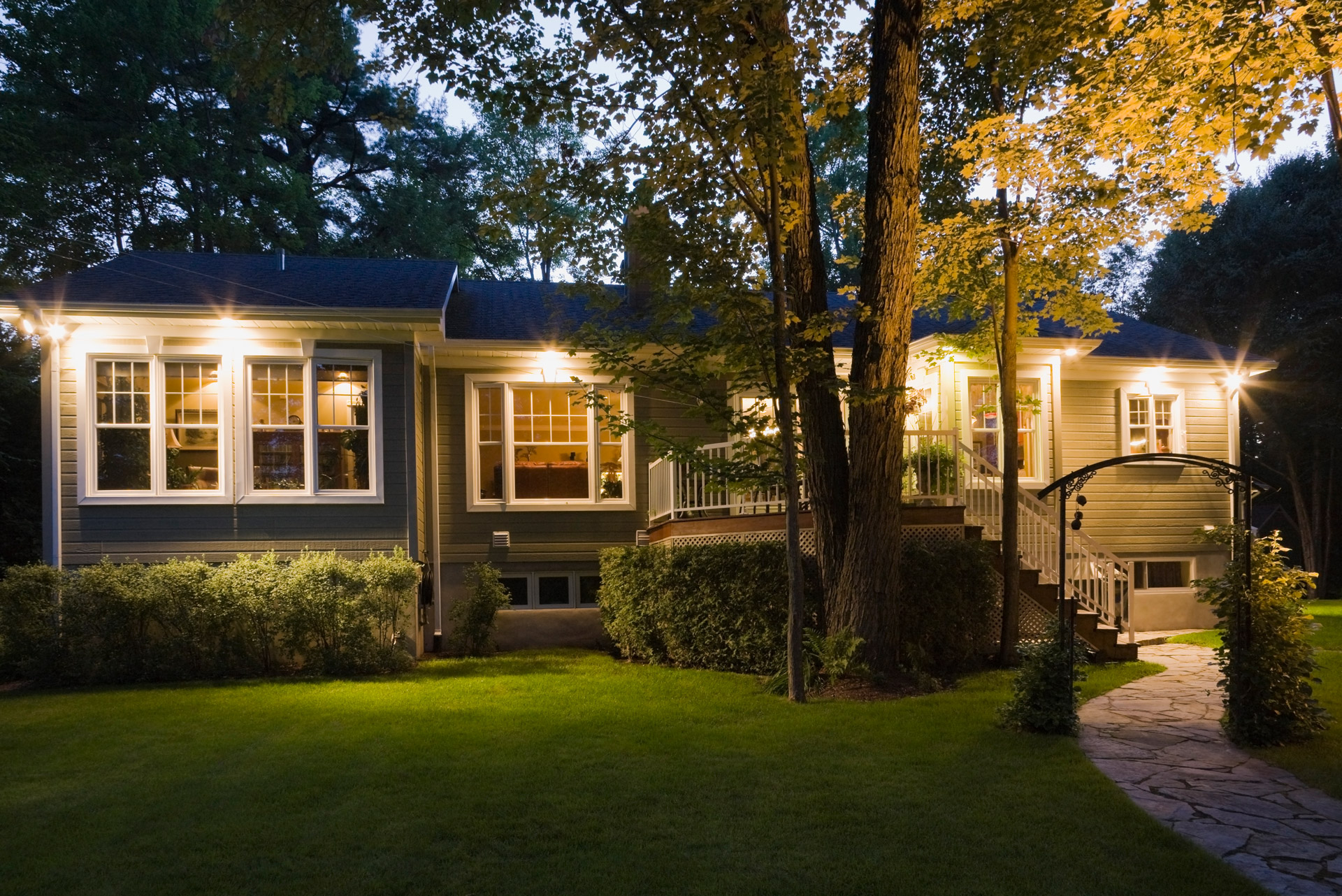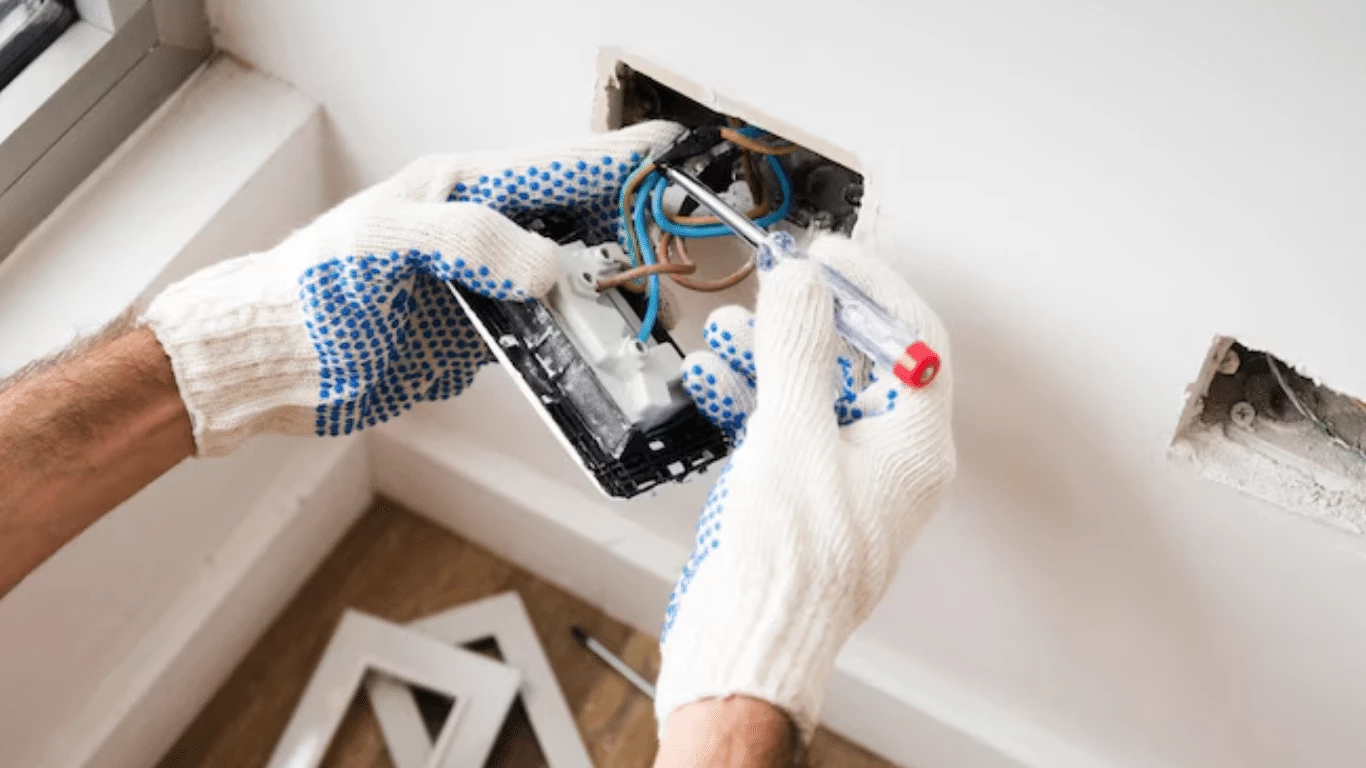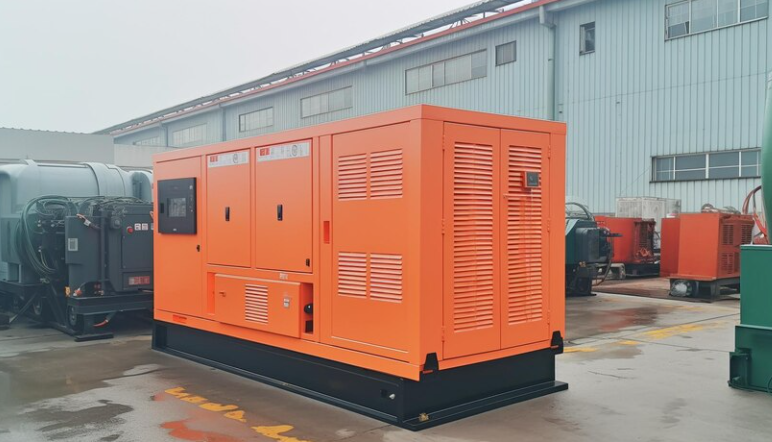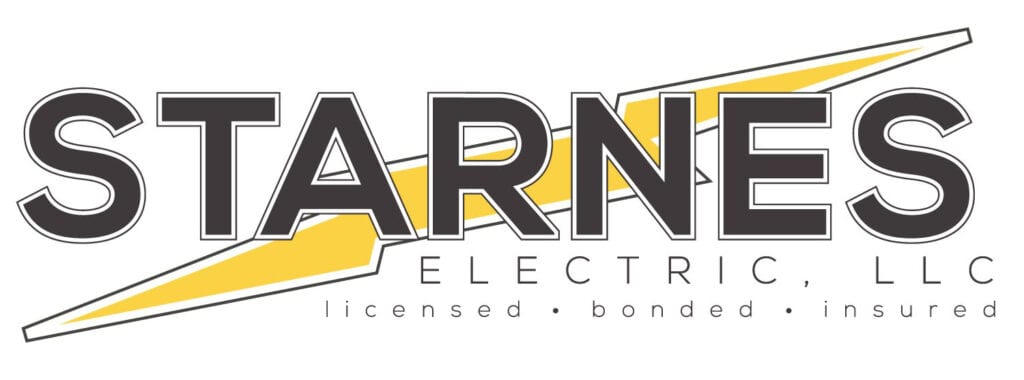Top-Rated Electricians for Whole-Home Generator Solutions
Is your house ready for a blackout if the electricity goes out? When the power in your home goes out, you won’t have to worry about running out of power because you have a whole-home generator to keep you supplied.
At Starnes Electric, we employ only the best electrical experts in town, so you can be sure that your whole home generator will be installed correctly and up to code. With years of experience in home electrical projects, our team is here to give you the peace of mind that your generator is ready when you need it.
Our team will work with you to determine the best type of generator for your home, based on its size and power needs — whether it’s a gas-powered one or a more energy-efficient model. We’ll also provide routine maintenance for your generator, so you can rest easy knowing it will always be running smoothly.
Is your home prepared for power outages? A whole-home generator provides all the power you need and gives you peace of mind whenever your home’s power goes out. At Starnes Electric, our team can help you determine the type of generator you need and properly install it for you. We sell and install Generac home generators for our customers.
We offer 24-hour standby service and maintenance to keep your generator running in perfect condition. Our team is also available to make sure you are informed on how to properly use your generator so that you can be prepared for any power outage. Contact us today to get started!
Generac is the #1 selling brand of home backup generators. It automatically begins working when your home’s primary power source cuts off. A Generac generator runs on natural gas or liquid propane (lp) fuel, making it environmentally safe. Our team will gladly answer your questions or concerns regarding Generac generators. If you decide to install a generator, you will also have 24/7 support from the manufacturer.
Get in touch with us right away if you have any questions regarding our generators or if you would like to book an estimate.
At Starnes Electric LLC, we specialize in generator installation services to meet a variety of needs. Whether you’re looking for a generator for your house, portable generator for outdoor activities, or a home backup generator for added security during power outages, our team of experts is here to assist you.
We understand the importance of having a reliable power source, which is why we offer top-quality generators from trusted brands like Honda, known for their durability and performance. With our wide range of generator options, you can find the best home generator that suits your specific requirements.
For barcode generator needs, we also provide efficient solutions to help homeowners streamline their operations. Whether you need to generate barcodes for inventory management or product labeling, our barcode generator services can assist you in creating customized barcodes that meet industry standards.
In addition to that, we offer citation generator services that can save you time and effort when creating references for your academic or professional work. Our citation generator follows the latest formatting guidelines, ensuring accurate and consistent citations for various citation styles.
If you’re in search of a random name generator for creative projects or gaming needs, we’ve got you covered. Our random name generator can generate unique names for characters, businesses, and more, providing you with endless possibilities and inspiration.
We also specialize in electric generators, including natural gas generators and gas generators. These generators are designed to provide reliable power for both residential and commercial applications. With our expertise, we can help you choose the right generator based on your power requirements and fuel preferences.
Starnes Electric LLC is committed to customer satisfaction, and we strive to deliver exceptional service from start to finish. Our team of professionals will guide you through the entire generator installation process, ensuring that your power needs are met efficiently and effectively.
Don’t let power outages or the lack of electricity hinder your productivity or comfort. Invest in a reliable generator today and enjoy peace of mind knowing that you have a backup power source when you need it most.
Contact Starnes Electric LLC for all your generator installation and service needs.
At Starnes Electric LLC, we also offer generator repair services to ensure that your generator is functioning optimally. Our team of skilled technicians has extensive experience in diagnosing and fixing generator issues, regardless of the brand or model.
Whether your generator is experiencing electrical problems, fuel system malfunctions, or mechanical issues, we are equipped to handle a wide range of repairs. We understand the importance of a reliable power source, especially during critical times, so we strive to provide efficient and effective repair services to minimize downtime.
When you reach out to us for generator repair, our technicians will promptly assess the problem and determine the necessary repairs. We utilize advanced diagnostic tools and techniques to accurately identify the root cause of the issue and develop a comprehensive repair plan.
Our goal is to get your generator back up and running as quickly as possible while ensuring the repairs are done to the highest standards. We work with genuine replacement parts and follow industry best practices to ensure the longevity and performance of your generator.
Whether you have a home generator, portable generator, or any other type of generator, we have the expertise to handle the repairs. We understand that each generator is unique, so we approach every repair job with meticulous attention to detail and a commitment to delivering exceptional service.
If your generator is in need of repair, don’t hesitate to contact us. Our friendly staff will schedule a convenient appointment and dispatch our skilled technicians to assess and repair your generator efficiently. Trust Starnes Electric LLC for all your generator repair needs.
Pricing
The price for generator services can vary depending on several factors, including the type of service required, the size and complexity of the generator, the extent of the repairs or maintenance needed, and the local market rates.
Here are some common generator services and their typical price ranges:
- Generator Installation: The cost of installing a generator can vary significantly based on the size and type of generator, the complexity of the installation, and any additional electrical work required. On average, generator installation costs can range from $1,500 to $10,000 or more.
- Generator Repair: The cost of generator repair can vary depending on the specific issue and the extent of the repairs needed. Minor repairs or maintenance tasks may cost anywhere from $100 to $500, while more extensive repairs can range from $500 to $2,000 or more.
- Generator Maintenance: Regular maintenance for a generator typically involves tasks like oil and filter changes, spark plug replacement, battery inspection, and overall system checks. The cost of generator maintenance can range from $200 to $500 per service, depending on the size and complexity of the generator.
It’s important to note that these price ranges are rough estimates and can vary based on your location and the specific details of the service. Additionally, emergency repairs or after-hours services may incur additional charges.
To get an accurate estimate for generator services, it’s best to contact a reputable generator service provider in your area. They can assess your specific needs, inspect the generator, and provide you with a detailed quote based on the required services.
At Starnes Electric LLC, we will work with you to attain not only the price that won’t hurt your budget but also quality work.
The Types Of Generators You Can Choose From
Indeed, there are several types of generators available in the market to cater to different power needs and applications. Here’s an overview of the types you mentioned:
- Standard Portable Generators: These generators are versatile and commonly used for various purposes, including powering tools and appliances at job sites, camping, or providing temporary backup power during emergencies. They typically run on gasoline or diesel fuel and offer a range of power outputs to accommodate different electrical loads.
- Portable Power Stations: Portable power stations, also known as battery-powered generators or power banks, are compact and lightweight units that provide portable power without the need for fuel. They feature built-in batteries that can be charged via AC power outlets, solar panels, or vehicle charging ports. Portable power stations are convenient for charging small devices, running small appliances, or providing power for outdoor activities.
- Inverter Generators: Inverter generators are designed to produce clean and stable power suitable for sensitive electronic devices like laptops, smartphones, and gaming consoles. They utilize advanced electronics to regulate the engine speed based on the power demand, resulting in quieter operation, improved fuel efficiency, and reduced emissions. Inverter generators are ideal for recreational use, camping, tailgating, and providing backup power for essential electronics.
- Standby Generators: Standby generators are permanently installed units that automatically provide backup power to your home or business during a power outage. They are connected to the main electrical panel and typically run on natural gas, propane, or diesel.
Standby generators can detect power loss and automatically start up to supply electricity to critical circuits or the entire premises, depending on the capacity. These generators offer long-term backup power solutions and are often integrated with automatic transfer switches for seamless operation.
Each type of generator has its own benefits and considerations. When choosing the right generator for your needs, factors such as power output requirements, fuel availability, noise levels, portability, and budget should be taken into account. Consulting with a reputable generator supplier or professional like us here at Starnes Electric LLC can help you determine the most suitable generator type for your specific needs and preferences.
What to Expect From a Generator Service
When it comes to generator services, there are a few things you can generally expect:
- Initial Consultation: Whether you’re looking to install a new generator or require repair/maintenance services, you can expect an initial consultation with a generator service provider. During this consultation, you’ll discuss your specific needs, power requirements, budget, and any other considerations.
- Assessment and Recommendations: For generator installation or repair, a technician will typically visit your location to assess the site, electrical setup, and any existing generator infrastructure. Based on this assessment, they will provide recommendations on the type and size of generator that suits your needs best, or diagnose the issues and suggest the necessary repairs.
- Cost Estimate: After the assessment, you’ll receive a detailed cost estimate for the recommended services. This estimate should include the cost of the generator unit (if applicable), installation or repair charges, any necessary parts or components, and any additional fees.
- Service Execution: Once you approve the estimate and schedule the service, the generator installation or repair will be carried out by trained professionals. For installation, this typically involves preparing the site, connecting the generator to the electrical system, configuring settings, and testing the unit. For repair, the technicians will perform the necessary repairs, replace faulty parts, and conduct tests to ensure proper functionality.
- Testing and Demonstration: After the installation or repair, the technicians will test the generator to ensure it is functioning correctly. They may demonstrate how to operate the generator, including any control panels or remote monitoring features, and provide instructions on maintenance and safety measures.
- Documentation and Warranty: You can expect to receive documentation related to the generator installation or repair, including invoices, warranties, and user manuals. It’s important to keep these documents for future reference, warranty claims, and maintenance purposes.
- Ongoing Support: Reputable generator service providers typically offer ongoing support and maintenance services. This can include routine maintenance, inspections, troubleshooting assistance, and emergency repair services to ensure the continued performance and reliability of your generator.
Remember that specific processes and timelines may vary depending on the service provider and the complexity of the project. It’s always a good idea to communicate your expectations clearly and ask any questions you may have before, during, and after the service to ensure a smooth and satisfactory experience.
Ranges (2,000 sqft, 3,000 sqft, etc)
When determining the appropriate generator size for residential applications, the square footage of the home is one factor to consider. However, it’s important to note that the square footage alone may not provide a complete picture of the power requirements.
Other factors, such as the number and types of appliances and electrical loads, should also be taken into account. Nevertheless, here’s a general guideline for generator sizes based on square footage:
- Up to 2,000 sqft: A generator with a capacity of around 8-12 kilowatts (kW) is typically suitable for homes up to 2,000 square feet. This size can power essential circuits, such as refrigeration, lighting, heating or cooling systems, and a few additional appliances.
- 2,000 to 3,000 sqft: Homes in this size range may require a generator with a capacity of 12-20 kW. This size can power a wider range of circuits, including essential appliances, water pumps, HVAC systems, and additional household electronics.
- 3,000 to 4,000 sqft: For larger homes between 3,000 and 4,000 square feet, a generator in the range of 20-30 kW is typically recommended. This size can support more circuits, including multiple air conditioning units, well pumps, large kitchen appliances, and other power-hungry devices.
Keep in mind that these ranges are general guidelines and individual power requirements can vary. It’s advisable to consult with a qualified electrician or generator specialist who can assess your specific needs, taking into consideration factors like the number and type of appliances, the geographical location, and any specific power demands in your home.
Additionally, it’s worth considering a professional load analysis to accurately determine your power needs and ensure that the generator you choose can meet those requirements effectively. This analysis takes into account the specific electrical loads and usage patterns in your home to determine the appropriate generator size and configuration.
Potential Tax Credits in SC
As of my knowledge cutoff in September 2021, there were no specific state tax credits available for residential generator installations in South Carolina. However, tax incentives and credits can change over time, so it’s essential to consult with a tax professional or visit the official website of the South Carolina Department of Revenue for the most up-to-date information on tax credits and incentives in the state.
Additionally, it’s worth noting that there may be federal tax incentives available for certain types of energy-efficient residential improvements, including renewable energy systems such as solar panels or geothermal heat pumps. These federal tax credits, such as the Residential Renewable Energy Tax Credit, may have specific criteria and limitations. It’s advisable to consult with a tax professional or visit the official website of the Internal Revenue Service (IRS) to understand the eligibility requirements and any available tax incentives at the federal level.
Remember to consult with a qualified tax professional or accountant who can provide personalized guidance based on your specific circumstances and the current tax laws in South Carolina. They will have the most accurate and up-to-date information regarding any potential tax credits or incentives for generator installations in the state.
Durability or Lifespan of Your Generator
There are a number of elements that can influence how long a generator will last and how durable it will be. Some of these aspects include the quality of the generator, the amount of use and the conditions of use, as well as the maintenance and care that is provided. In general, generators of greater quality and those that are maintained regularly are more likely to have longer lifespans.
- The Generator’s Quality Making an investment in a generator of good quality from a well-known brand can have a considerable impact on both its longevity and its level of durability. In order to ensure that their generators are made to last, reputable manufacturers frequently make use of high-quality components, cutting-edge engineering, and stringent quality control procedures. It is important to do some research and select a generator from a reputable manufacturer that is well-known for delivering products that are dependable and long-lasting.
- Routine Maintenance and Care Continual maintenance and correct care are two of the most important factors in determining how long a generator will last. When you follow the maintenance schedule that is advised by the manufacturer, you may help minimize premature wear and tear. This routine may include things like oil changes, filter replacements, and inspections. In addition, ensuring that the generator is kept clean, shielding it from the elements, and fixing any problems as soon as they arise can all help to its extended lifespan.
- Load and Usage A generator’s lifespan can be impacted by the amount of time it is put to use as well as the conditions under which it operates. Running a generator for extended periods of time or operating it under strong loads on a regular basis may place additional strain on the components, which may limit the generator’s lifespan. It is essential to match the capacity of the generator to the anticipated power demands and to refrain from overloading the generator.
- The environment in which a generator is used can have an effect on its long-term durability. The rate of wear and corrosion can be hastened by being subjected to severe temperatures, as well as moisture, dust, and other hostile circumstances. It is possible to reduce the effects of these environmental factors and lengthen the lifespan of the generator by performing proper installation and placement. This includes providing sufficient ventilation and protection from the elements.
- Warranty: It is important to pay attention to the warranty that the manufacturer provides. The length of the warranty period is a good indicator of how confident the manufacturer is in the product’s capacity to last and perform as promised. Read the terms and conditions of the warranty to have a better understanding of what is covered and for how long.
It is difficult to provide an accurate estimate of how long a generator will survive; nonetheless, high-quality and well-maintained generators normally have a lifespan that ranges from ten to thirty years or even more.
A generator’s durability and longevity can be maximized by ensuring it receives routine maintenance, is used appropriately, and is operated in accordance with the manufacturer’s specifications.
The Pros and Cons Of a Generator
Depending on the user’s specific requirements and circumstances, generators offer a variety of benefits and drawbacks. Here are the benefits and drawbacks of using a generator:
Benefits of a Whole-Home Generator
If you think you can’t be safe and comfortable during a bad storm that causes your power to go out, think again. Not only does a home generator do just that, and more.
- Uninterrupted Power When the power goes out, and your backup power supply kicks in, you won’t be left in the dark. You will be able to continue enjoying watching tv, surfing the internet, keeping your devices charged, using appliances, and more.
- Increased Safety A backup power supply allows your home’s security system to continue operating, keeping you and your family safe.
- Food Preservation With a home generator, you don’t have to scramble to figure out what to do with food in your refrigerator before it spoils. You can rest assured that your food will stay fresh in the fridge no matter how long the power stays out.
- Low Risk of Water Damage No one likes experiencing water damage to their home from a power outage. Without a standby generator during wintry weather, pipes can freeze and break, causing significant damage throughout your home.
- More Savings Although the initial purchase and installation of a generator can be costly, you will save money by not having to pay for appliance repairs and potential pipe replacements. A power outage during the winter can cause your home’s pipes to freeze. With a whole-home generator, you can avoid having to replace frozen pipes.
Disadvantages of Generators
Initial Investment: Depending on the type, size, and features, generators can represent a significant initial investment. Installation, fuel, and maintenance expenses should also be considered. Large capacity or standby generators are typically more expensive than smaller portable generators.
The majority of generators require fuel to operate, such as petroleum, diesel, natural gas, or propane. This creates a reliance on fuel availability and may necessitate regular refueling or fuel storage, which can be problematic during prolonged power outages or emergencies.
Noise and Emissions: Some generators, particularly older or lower-quality models, can be raucous. In residential areas and during outdoor activities where a quiet environment is preferred, noise levels can be a concern. In addition, conventional generators produce exhaust emissions, which necessitates ventilation to prevent the accumulation of hazardous gasses.
Generators require routine maintenance, including lubricant changes, filter replacements, and system-wide inspections. Neglecting maintenance can result in diminished performance, increased fuel consumption, and potential generator failures when they are most needed.
Depending on the size and design of the generator, the power output may be constrained. Certain generators may not be able to accommodate large-scale power demands, such as the operation of multiple air conditioners or hefty machinery.
When considering a generator, it is essential to consider your specific requirements, budget, and the trade-offs between various types and models. Proper research, a comprehension of the pros and cons, and expert consultation can assist you in making an informed decision.
What Should You Choose: Gas Vs. Electric Vs. Solar Powered
When it comes to choosing between gas, electric, and solar powered options, it depends on your specific needs and budget.
For those looking for an inexpensive and efficient option, electric is the way to go. Electric power is generated using renewable sources such as wind and solar, and is cheaper and more reliable than gas.
Electric power is also more efficient, with less wasted heat and less carbon dioxide emissions. Additionally, electric power is easier to install than gas, and electric appliances can be used with lower cost and require less maintenance.
Gas is another popular option. Gas is an ideal choice for those who need a reliable source of energy without the environmental concerns associated with electric power. Gas is also cheaper than electric, and can provide a consistent supply of energy. However, gas is more expensive to install and can be more difficult to maintain than electric. Additionally, gas appliances can be more expensive to purchase.
Solar power is often seen as the cleanest and most sustainable option. Solar power is generated using renewable energy from the sun, and is completely emissions free. Additionally, solar power is becoming more affordable and easier to install, with more efficient solar cells and panels. Solar power is also more reliable, since sunlight is always available. However, solar power can be expensive to install and maintain, and solar energy may not be available in certain regions.
Ultimately, the decision of which energy source to choose will depend on your individual needs and budget. Consider the cost, the availability, and the environmental impact of each option to make the best choice for your home.
Choose Starnes Electric for Your Whole-Home Generator Needs!
Starnes Electric LLC is a comprehensive electrical service contractor that can meet all of your requirements. You will receive service from a licensed Rock Hill electrician with years of experience diagnosing and repairing home wiring systems if you employ us. To ensure the safety of your family, we can fix any wiring or electrical hazards in your residence.
Call Starnes Electric LLC if you have issues with your home’s electrical wiring, and a York County Electrician will promptly come to your home, diagnose the problem, and take care of the situation. Select the most dependable electrician in the area!





